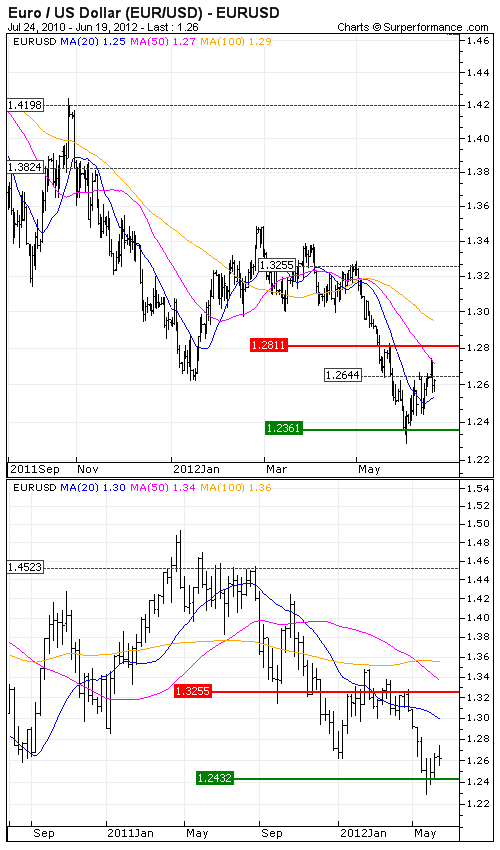Euro / US Dollar (EUR/USD) : Relief in Eurozone
By Mathieu Burbau
Although negotiations will be difficult, the conservative Greek seems now in a position to form a coalition government with his socialist opponents to get an absolute majority at the parliament and continue the reforms required by the European Union. Whilst rejecting from discussions the far left anti-austerity party, Syriza, aways the nightmare scenario of a collapse precipitated by Greece.
The verdict of the Hellenic election does not erase the structural problems of the Old Continent. While borrowing costs from Italy had nearly doubled at its last auction in the long run last week, Spanish rates just surpass the 7%, unsustainable threshold, for the first time since the creation of the Eurozone. Pending further details on the recapitalization of the Iberian banking sector, the cost of insuring against a default of Madrid (CDS) also reached a new level.
The Euro resists and could benefit from a little more support in the upcoming sessions, in conjunction with several international events: G20, Eurogroup and monetary policy meeting of the Federal Reserve.
Technically, the Euro and its rebound confirms in contact with its 50-days moving average and is expected to consolidate temporarily in the area 1.2560/1.27 before reacting to announcements of potential leaders around the world.










